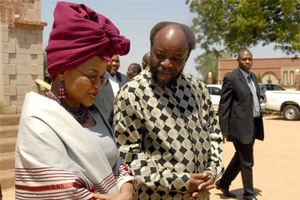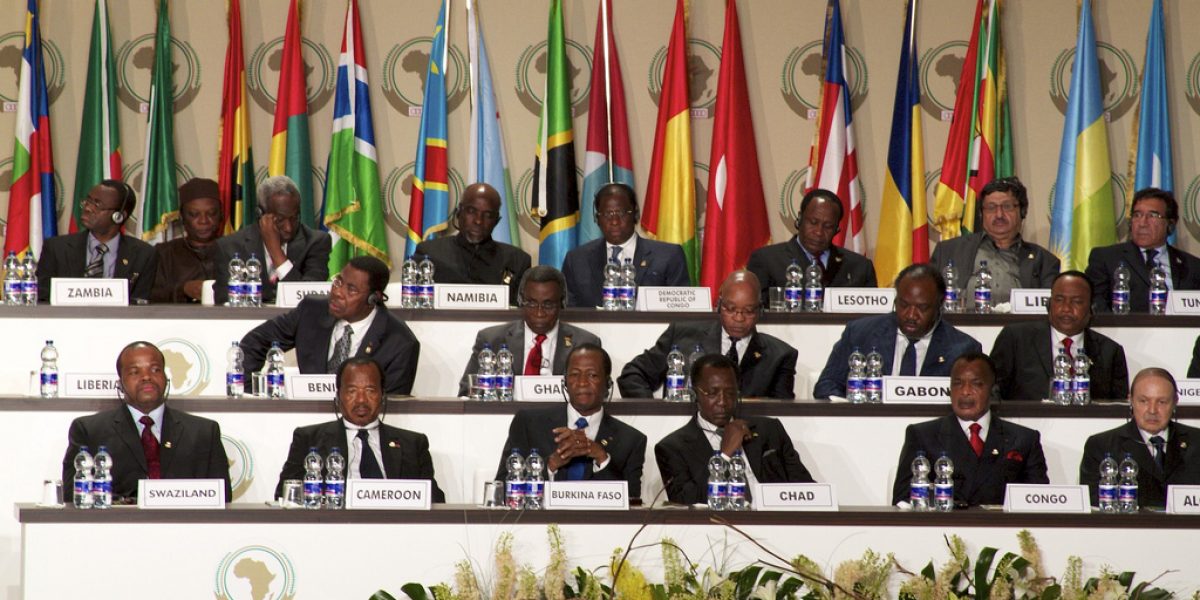While the country spectacularly failed in one, it quietly won continent-wide support for its bid to serve on one of Africa’s most innovative and important governance mechanisms that has evolved over the last 10 years. The theme of the 18th Summit of the African Union, recently held in Addis Ababa, was ‘Boosting Intra-African Trade.’ An important agenda, chosen to raise awareness amongst African countries about the value of stronger continental trade links in support of the ambitious pursuit of a Continental Free Trade Agreement by 2017. Instead the business of the day was overshadowed by a bold and ultimately failed bid by South Africa to win the AU’s top job of Chairperson of the African Union Commission against the incumbent, Gabon’s Jean Ping.
Nonetheless, against the backdrop of the publicity frenzy around South Africa’s ‘un-African’ high-profile ballot, another South African’s bid for election in Addis Ababa was more successful. Away from the publicity of the AU leadership race, the 16th Summit of the Committee of Participating Heads of State and Government of the African Peer Review Mechanism (APR Forum) held its’ own election on the fringes of the AU forum. The former Deputy President of South Africa, Baleka Mbete, who was appointed to the position during Kgalema Motlanthe’s caretaker presidency, was unanimously elected by the forum to serve on the Panel of Eminent Persons of the African Peer Review Mechanism (APRM).
The APRM was first conceived ten years ago as an ‘African solution’ to governance and socio-economic problems on the continent. As a flagship programme of the AU, which enjoyed significant support from South Africa at its inception as one of its fellow architects, it is an innovative initiative and process by which to identify country-specific governance weaknesses and implement remedies through the creation and implementation of targeted action plans.
The process also provides a forum in which African leaders can share experiences and best practices on how to improve governance institutions and processes. It is a voluntary initiative, to which 33 of 54 states on the continent have already acceded. Between January 2006 and January 2012, 15 member countries have been reviewed with varying degrees of progress being made on their resulting national plans of action (NPoA’s). The most important contribution of the peer review process has been its encouragement of dialogue between governments and civil society and increasing the scope for honest discussions on issues of governance and development.
The Panel of Eminent Persons is a core structure in the APRM. This panel is a committee of seven Africans of significant stature who are held in high regard by the people of Africa. Each candidate must possess exceptional expertise and integrity and must have the capacity to engage stakeholders at a high level, including individual Heads of State and Government. The role of the panel is to provide oversight of the APRM Secretariat, to lead Country Review Missions and assure the quality of the outputs of the APRM process such as the Country Review Reports and National Programmes of Action. The panel plays a critical role in garnering political support for improved governance in the region and ensuring that the country review processes and subsequent high-level discussions are emboldened and embodied with the founding ideals of the mechanism.
Until Mbete was elected to this position alongside four other eminent Africans, only four of the seven positions had been filled. Her appointment will serve to increase the capacity of the panel to perform its important functions. She will join panel members Barrister Julienne Ondziel Gnelenga (Republic of Congo), Barrister Akere T. Muna (Cameroon), Ambassador Professor Okon Edet Uya (Nigeria), Ambassador Ashraf Gamal (Egypt), Dr. Mekideche Mustapha (Algeria), Ambassador Fatuma Ndangiza Nyirakobwa (Rwanda) and the Panel’s newly-elected Chairperson, Professor Amos Sawyer (Liberia). She is currently the only representative of a Southern African country sitting on the panel.

Baleka Mbete is a prominent South African politician; she has served as both Speaker and Deputy Speaker of the National Assembly of parliament and as a member of the Constitutional Assembly. She served on a UNIFEM panel of experts to assist in engendering the Burundi peace process in 2000 and as a member of the Pan African Parliament in 2004.
She is respected and recognised by the international community, has championed the rights of women on the continent and is a prominent human rights and justice campaigner. She is currently an ANC member of parliament, the ANC’s National Chairperson and a member of the ANC’s National Executive Committee. There is little doubt that she is qualified for the position, although concerns may be raised over the number of positions she currently holds and how this may impact on the time and energy she that will be able to devote to the APRM.
Nonetheless, Mbete’s appointment to the APRM panel represents an important step forward as the panel needs all the support that it can garner for its critical work in the region. One of the lessons to be drawn for South Africa out of its two bids, is that there are different but equally important ways that South Africa can bolster the work of the AU and play a leading role on the continent in forging a common consensus on the challenges facing the region.








